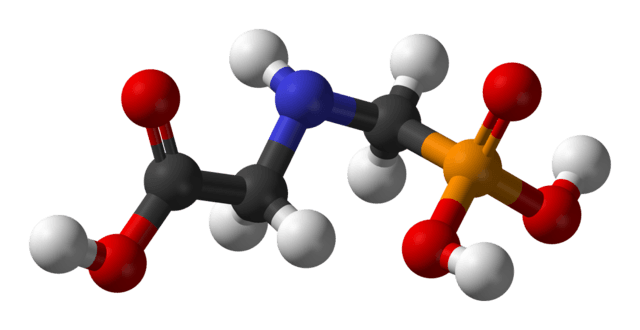
The World Health Organization’s (WHO) cancer research division has issued a report suggesting that the chemicals in one of Monsanto’s most popular products, Roundup, is probably carcinogenic to humans. As a result, the agrochemical and biotech company has launched an attack against the international organization, accusing it of selective science and bias.
The ruckus stems from a study conducted by the International Agency for Research (IARC), which is tasked with researching the causes of cancer, suggesting policies for cancer screening and compiling statistics related to cancer. Along with glyphosate, the weed-killing ingredient used in Roundup, the IARC also suggested four other insecticides could probably cause cancer. One of the other chemicals is malathion, which was sprayed all over California during the early 1980s to stop the spread of the Mediterranean fruit fly — and that controversy was in part why Jerry Brown lost his bid for a U.S. Senate seat after his first run as the state’s governor ended.
Now, Monsanto is accusing the WHO and IARC of sparking another controversy and is demanding that the study be retracted.
According to Monsanto, the IARC study suffers from a bevy of flaws: analysis of data that already exists; the exclusion of data that suggests glyphosate is not a health risk; a conclusion not supported by scientific data; and no firm, established link between the chemical and cancer.
Glyphosate has become increasingly popular the past 20 years since Monsanto introduced crops that were genetically modified to resist its Roundup product. In recent years, however, more weeds have become resistant to glyphosate, and as a result farmers have been using the herbicide with more frequency and in larger amounts. In fact, the U.S. Geological Survey found the use of glyphosate has surged since the early 1990s — from about 20 million pounds in 1992 to almost 300 million pounds in 2012. The results have been particularly worrisome in the Midwest, where much of the nation’s soy, wheat and corn are grown. Glyphosate has been found in streams across the region, though at a level the U.S. Environmental Protection Agency says is well below a maximum contaminant level (MCL) for drinking water.
The U.S. Department of Agriculture regularly reports on pesticide residues in various foods. And, as it announced last December, the department concluded that while pesticides are detectable in many foods, they are within levels that the agency determines to be safe. But as a USDA spokesman explained to Reuters, the agency does not test for glyphosate because the tests are “extremely expensive.” And, as is the case with many pesticides used on commodity crops, such foods are so heavily processed by the time they are on store shelves that any residues are usually eliminated. As with much of this research, the devil is in the details — or in reality, how transparent (or opaque) the studies are, a complaint often hurled at Monsanto.
Some scientists, and of course consumers, are not buying the assumption that glyphosate is safe. Other studies suggesting a link between the herbicide and cancer exist within scientific literature. Researchers including David Schubert, a professor at the Salk Institute for Biological Studies, insist the accumulation of glyphosate in the environment poses too many health risks. Schubert was quoted by Reuters as saying that glyphosate should be banned for the risks it poses to cancer and tumor growth.
Watch for the battle to become more heated in the coming months. The EPA, which can set limits on the use of glyphosate or even ban it, assesses IARC reports when making final regulatory decisions. Monsanto, and its allies in Congress, will be more than ready for any fight.
Image credit: Benjah-bmm27

Leon Kaye has written for 3p since 2010 and become executive editor in 2018. His previous work includes writing for the Guardian as well as other online and print publications. In addition, he's worked in sales executive roles within technology and financial research companies, as well as for a public relations firm, for which he consulted with one of the globe’s leading sustainability initiatives. Currently living in Central California, he’s traveled to 70-plus countries and has lived and worked in South Korea, the United Arab Emirates and Uruguay.
Leon’s an alum of Fresno State, the University of Maryland, Baltimore County and the University of Southern California's Marshall Business School. He enjoys traveling abroad as well as exploring California’s Central Coast and the Sierra Nevadas.














